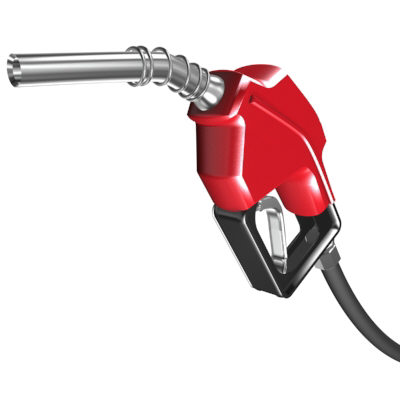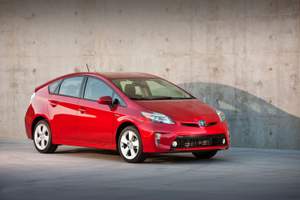
The best way to get more MPG out of cars is to tax fuel, according to researchers at the Massachusetts Institute of Technology. They published a study in the journal Energy Economics (Volume 36, March 2013, Pages 322–333) that showed that fuel economy standards (such as the ones now in force in the U.S. ) cost at least six times as much (and up to 14 times as much) to reduce gasoline use as would a tax on the fuel. They added that a fuel economy standard is an expensive mechanism to reduce greenhouse gas emissions (GHG) and raises the cost of a cap-and-trade policy, such as the one just starting in California.
The MIT researchers (from the Joint Program on the Science and Policy of Global Change) used their own model to test different policy impacts on fuel use and came to some clear-cut conclusions – “this analysis underscores the potentially large costs of a fuel economy standard relative to alternative policies aiming at reducing petroleum use and GHG emissions. It further emphasizes the need to consider sensitivity to vehicle technology and alternative fuel availability and costs as well as economy-wide responses when forecasting the energy, environmental, and economic outcomes of policy combinations.” The goal was to generate a 20% reduction in gasoline use using different policies.
The study also found that with a cap-and-trade policy, the key to its effectiveness is the availability of cost-competitive, low-carbon biofuels that would help deliver GHG reductions.
Fuel Economy Standards
While many in the environmental community have lauded the fuel economy standards passed by EPA to reduce GHG and increase fuel efficiency through 2025, the MIT researchers found that the broader costs to the economy were not taken into consideration. Of course, the political fallout from a rise in the gas tax remains to be seen. Conventional wisdom says that a gas tax hike, however small, is the third rail of politics – attempt it only at the risk of your career as a politician. The logic behind that is that this is a tax that hits almost every voter and voters will be reminded of it every time they fill up.
With increased fuel economy standards, consumers get positive reinforcement as their new vehicles deliver better MPG than their old ones. But that requires a substantial financial outlay to purchase the latest technology and the vehicle in which it is encapsulated, which keeps many in the economy out of the range of fuel economy that fits their budget.
The researchers found that with their model it took longer to reduce GHG emission with vehicle efficiency standards. One logical finding they had: with more efficient vehicles, it costs less to drive, so Americans tend to drive more. This is born out in the ever-increasing VMT (vehicle miles traveled) numbers recording by the Department of Transportation.

My view is that is a classic case of political reality out of sync with changing reality. While taxes in general and gasoline taxes in particular may be a hot topic of discussion, this is a country that has dealt with rapid and extreme price fluctuations during the past decade. Check out this graph from the government Energy Information Administration. I believe the experience of the past decade had created a different type of consumers; the ones who now value fuel efficiency more than other factors when purchasing a car. The ones that have changed the landscape of automobile size and shape during the past decade. The ones that have made the Toyota Prius hybrid one of the top 10 best-selling cars in the country. These are consumers buying hybrids, clean diesel, plug-in cars and high-mileage gasoline cars in ever-increasing numbers. These are consumers choosing to “right-size” their fleet to maximize efficiency and fuel economy. Consumers that see 10 to 50 cent daily fluctuations in gasoline prices are beyond knee-jerk reactions to a nickel- or dime-a-year taxes on fuel. That’s not to say it couldn’t become a potent political issue, but properly presented, with a clean explanation of where and how the money raised will be used (for infrastructure maintenance and upgrades and support for those struggling to afford new, higher-mileage vehicles, for example) should make it more palatable.
Of course, skeptics might look at the same data and say that fluctuating prices have dulled consumers to the real impact of what the proposed tax increases might have. The same attitude that would lead drivers to ignore small increases might lead them to not change behavior, whether it’s buying more fuel efficient vehicles or driving less.
What do you think?
